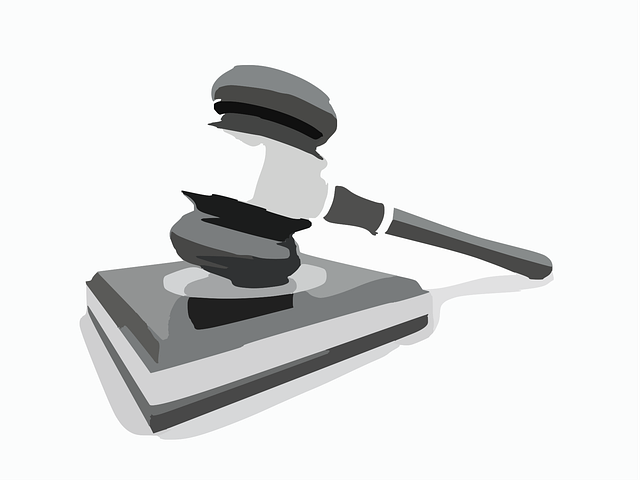Healthcare compliance experts are crucial for navigating complex legal terrains, including Due Process in Criminal Law Cases. They interpret and enforce regulations, preventing legal issues like those related to due process, which could impact healthcare providers. By ensuring compliance, they safeguard organizations from indictment, uphold legal integrity, and foster ethical cultures. In criminal law cases, their expertise guides clients through trials, protects individuals' rights, and provides expert testimony to ensure fairness and accuracy in legal proceedings.
Healthcare Compliance Experts play a vital role in ensuring institutions adhere to complex regulations. From understanding Due Process in Criminal Law Cases to providing expert testimony, their expertise enhances patient safety and mitigates legal risks. This article delves into the multifaceted responsibilities of these professionals, exploring how they navigate regulatory landscapes, contribute to fair practices, and ultimately protect vulnerable populations through rigorous compliance measures.
- Understanding Healthcare Compliance Experts' Role
- Navigating Due Process in Criminal Law Cases
- The Importance of Expert Testimony
- Enhancing Patient Safety Through Compliance
Understanding Healthcare Compliance Experts' Role

Healthcare Compliance Experts play a pivotal role in ensuring that healthcare organizations navigate complex legal and regulatory landscapes with precision. Their expertise lies in interpreting and implementing laws, rules, and guidelines governing healthcare practices, from patient privacy to billing procedures. These professionals are crucial in preventing legal pitfalls, such as those involving Due Process in Criminal Law Cases, which can have severe consequences for healthcare providers.
By upholding compliance standards, they help organizations avoid indictment and maintain an unprecedented track record of legal integrity. Through their meticulous work, these experts foster a culture of ethical conduct, ensuring that healthcare services are delivered within the confines of both legal and moral obligations.
Navigating Due Process in Criminal Law Cases

In criminal law cases, navigating due process is a critical aspect where healthcare compliance experts play a pivotal role. Due Process ensures that individuals are treated fairly and equitably within the legal system, guaranteeing their rights to be heard, ensuring a just trial, and protecting them from arbitrary or unjust actions by the state. For his clients, this means a meticulous understanding of complex regulations and procedures to ensure adherence to legal standards.
Expertise in due process is essential for healthcare professionals facing criminal investigations or charges. By mastering these procedures, experts can help individuals navigate jury trials, ensuring their rights are upheld and achieving extraordinary results. This includes guiding clients through pre-trial hearings, preparing them for potential questions, and presenting compelling defenses based on the specific facts of each case.
The Importance of Expert Testimony

In healthcare compliance cases, expert testimony plays a pivotal role, ensuring fairness and accuracy in legal proceedings. This is particularly crucial in complex scenarios where understanding industry standards and regulations can be a game-changer. When navigating the intricate web of laws and policies, experts provide clarity, offering insights that may not be readily apparent to laypeople. Their unparalleled knowledge and experience enable them to interpret data, explain technical aspects, and present findings in a manner that facilitates comprehension for judges and juries.
In the context of Due Process in Criminal Law Cases, these specialists can offer invaluable assistance. With their unprecedented track record in similar cases, they contribute to shaping strategies for both defense and prosecution. Their expertise bridges the gap between legal jargon and real-world implications, fostering a deeper understanding of the issues at hand. This is particularly beneficial in high-stakes trials where decisions can have far-reaching consequences, impacting not only general criminal defense practices but also the confidence of philanthropic and political communities in the integrity of the legal system.
Enhancing Patient Safety Through Compliance

Healthcare compliance experts play a pivotal role in enhancing patient safety by ensuring that healthcare organizations adhere to complex regulations. Their work is crucial throughout all stages of the investigative and enforcement process, particularly when navigating white collar and economic crimes. By implementing robust processes and protocols, these experts mitigate risks associated with legal and ethical violations, ultimately protecting patients from harm.
Compliance goes beyond mere adherence to laws; it involves a strategic approach to risk management. Healthcare compliance professionals diligently monitor and update policies, procedures, and training programs to keep up with evolving regulations and industry best practices. Moreover, they foster a culture of ethics and integrity within healthcare institutions, serving as a buffer against potential legal pitfalls, especially in complex white collar defense cases that often arise from due process in criminal law matters.
Healthcare compliance experts play a vital role in ensuring patient safety and institutional integrity. By understanding their multifaceted responsibilities, from navigating due process in criminal law cases to providing expert testimony, organizations can foster a culture of ethical practice and regulatory adherence. Enhancing patient safety through robust compliance measures not only mitigates legal risks but also upholds the highest standards of care, ultimately benefiting both patients and healthcare providers alike.






